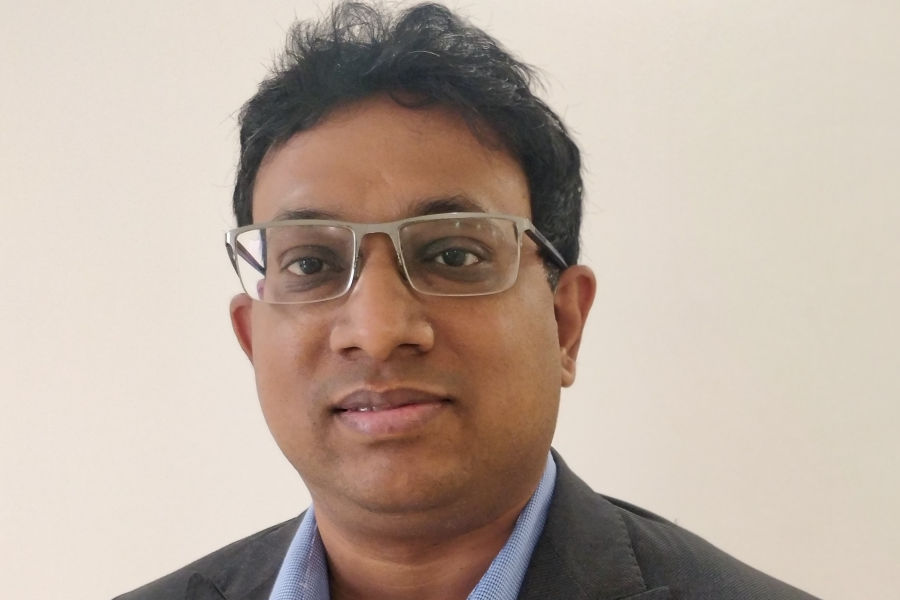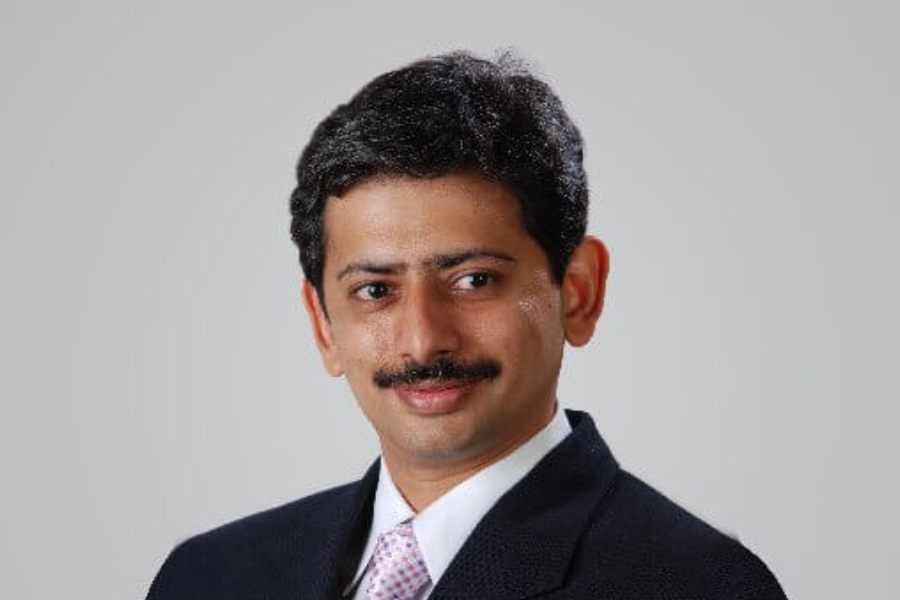Agrivoltaics: Fusing farming and solar power
India Business and Trade has initiated an interview series called ‘Green Guardians – Fueling India’s Energy Transition’ where thought leaders will share insights on their journey to contributing to the clean energy revolution in India.
In our first interview, we had the privilege of speaking with Mr. Vivek Saraf, the Founder & CEO of SunSeed APV, a pioneering Agrivoltaics startup seamlessly integrating climate-controlled cultivation with solar power generation.
In this enlightening conversation, Mr. Saraf candidly shares the inspiration behind SunSeed APV and their unwavering commitment to clean energy innovations. He provides valuable insights into differentiating the brand in India’s competitive solar sector and reflects on the challenges and significant impact they’ve achieved.

IBT: To start let’s talk about the inspiration behind your venture. What motivated you to create SunSeed APV?
Vivek Saraf: Before I delve into what inspired me to start this venture, let me give you a quick overview of what SunSeed APV is all about. We specialize in Agrivoltaics, which involves combining agriculture with solar generation. This innovative approach is still in its early stages and is gaining traction worldwide, with Europe leading the way. I embarked on this journey back in late 2020, but my involvement in the solar industry dates back four to five years prior to that. During that time, I worked with a company focused on niche solar projects, such as installing solar panels over canals and carports above roads, seeking multiple benefits beyond just clean energy generation from ground-mounted solar.
Agrivoltaics was a concept I closely followed, keeping myself updated on the research and developments in Europe. In 2020, I strongly believed the time was right, and I was convinced that this approach could have significant potential in India, offering a compelling value proposition. With this conviction, I founded SunSeed APV with the goal of creating solutions and developing projects in the field of agrivoltaics.
IBT: With the solar sector experiencing significant growth, competition is undoubtedly fierce. So how does your company differentiate itself from existing players in the market?
Vivek Saraf: Certainly, the solar industry is indeed highly competitive, with developers engaged in aggressive bidding for tariffs, leading to squeezed profit margins across the value chain. However, what sets us apart is that our focus on agrivoltaics makes us pioneers in a relatively untapped space. While there’s significant buzz around agrivoltaics in India, there are very few projects that have been executed, and no other company is offering specialized solutions in this field like we are.
This uniqueness gives us a distinct advantage, but it also comes with the challenge of building the market from scratch. However, I’m pleased to share that the progress has been faster than anticipated. The government is showing great interest in promoting agrivoltaics and is expected to introduce policies in that regard. This will undoubtedly create a conducive environment for us to grow and flourish in this emerging market. Despite the challenges, we are optimistic about the opportunities that lie ahead, and we are excited to be at the forefront of this promising industry.
IBT: As an entrepreneur, you must have faced challenges during the years of your startup. Kindly your insights into the hurdles encountered, and the impact you have achieved thus far.
Vivek Saraf: As an entrepreneur, one of the significant challenges we faced was raising funds to build our solutions and establish the company. However, we managed to grow organically and form a partnership with a German development agency, GIC, which has been instrumental in supporting some of our projects. Building a strong team was also crucial, and I feel fortunate to have found talented individuals to join our journey.
Developing solutions for a nascent market presented another obstacle, but we have been making progress in this area. There’s a lot of potential for projects, and we have successfully completed some, like the one you see in Maharashtra, which was a recent achievement for us.
IBT: What would be the vision of SunSeed and its growth strategy going forward?
Vivek Saraf: Our vision is to establish hundreds of megawatts of agrivoltaic projects, where we not only generate solar power but also cultivate agricultural produce. Our focus is on creating a brand of agricultural products and selling high-value crops. Specifically, we are concentrating on integrating climate-controlled cultivation with solar generation, enabling us to grow premium crops with high demand in the market.
We plan to develop agrivoltaic parks in the peripheries of urban areas, utilizing climate-controlled cultivation to produce top-quality crops for urban markets. Additionally, we are exploring the potential of rooftop agrivoltaics, where we can combine rooftop solar installations with urban farming, a concept that has been gaining popularity recently.
Technology is at the core of our operations, and we have built a software-based decision support system using a digital twinning strategy. This system allows us to simulate light distribution and microclimates under various configurations of solar panels and protected cultivation. Coupled with extensive research on crop requirements, we can optimize crop growth by providing the ideal light distribution for each crop.
Overall, we are in the early stages of our journey, but our progress is promising. We believe that our technology solutions and innovative approach will pave the way for successful agrivoltaic projects and contribute to sustainable agriculture and clean energy production.
IBT: In the current landscape of investment, energy-based startups have become increasingly appealing to investors these days. What factors do you think make these ventures interesting or attractive?
Vivek Saraf: In the past seven to eight years, clean energy has been a highly appealing sector for startups, but recently, there has been a slowdown in funding for new ventures. However, there is now a growing global emphasis on sustainability and achieving net-zero emissions, which has reignited interest in renewable energy, particularly solar power.
As an entrepreneur in the solar industry, I believe there is a fresh momentum to advance solar energy and embrace the net-zero concept. The push towards a greener future has led to increased funding opportunities for startups like ours. The demand for innovative solutions to address climate change is stronger than ever, and we are eager to pitch our unique offerings to potential investors.
Despite the challenges, the current global environment appears favourable for clean energy startups. We are optimistic that the rising focus on sustainability will provide ample funding opportunities to drive the growth and success of innovative clean energy ventures.
IBT: What recommendations would you provide to the government to further accelerate the development and adoption of clean energy solutions?
Vivek Saraf: To promote the growth of agrivoltaics projects, enabling policies are crucial. Currently, solar projects often require land-use changes to industrial, but specific policies like the KUSUM initiative have provided some support. However, more clarity on certain aspects, especially when dealing with farmers for land leasing, is essential to ensure legal sanctity.
Additionally, minor approval-related processes need streamlining to facilitate the implementation of such projects. While significant government intervention may not be immediately necessary, offering viability gap funding to address the high upfront capital costs could be beneficial in the initial stages. This would provide developers with more confidence and encourage investments in this promising sector.
Fortunately, agrivoltaics presents a win-win situation, benefiting both farmers and developers with increased employment opportunities and improved internal rates of return (IRRs). Although our model focuses on achieving viable IRRs without subsidies, offering temporary funding support could incentivize early adoption and pave the way for a sustainable future in clean energy. It’s encouraging to see that the government is actively engaging in consultations and exploring potential solutions to accelerate the growth of agrivoltaics in India.
Vivek Saraf is the founder & CEO of SunSeed APV. He has 20+ years of global experience working in Finance and Renewable Energy and is a big proponent of sustainable solar applications that provide multiple benefits. Vivek has an engineering degree from IIT Kanpur and an MBA from Thunderbird, USA. He worked for several years in the financial consulting industry in New York before returning to India 10 years ago.













I have been considering to convert my farm in Malaysia to a Agrivoltaic farm together with my current Dairy and fodder production operation. I have 60 ACS of flat land with good infrastructure and close to the main grid.